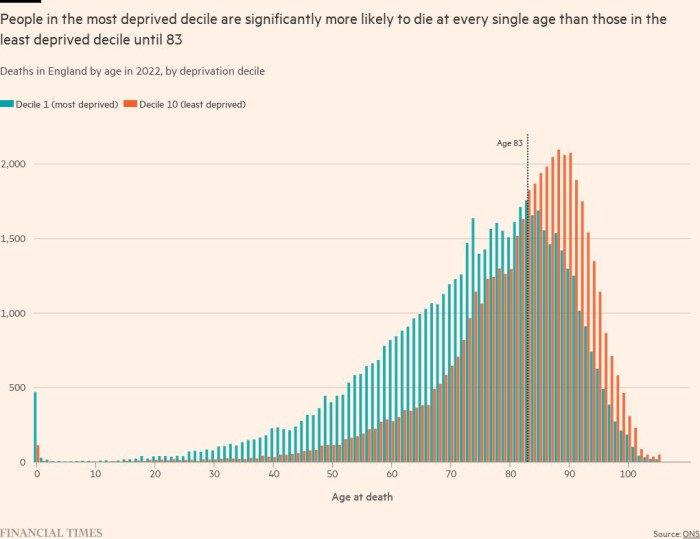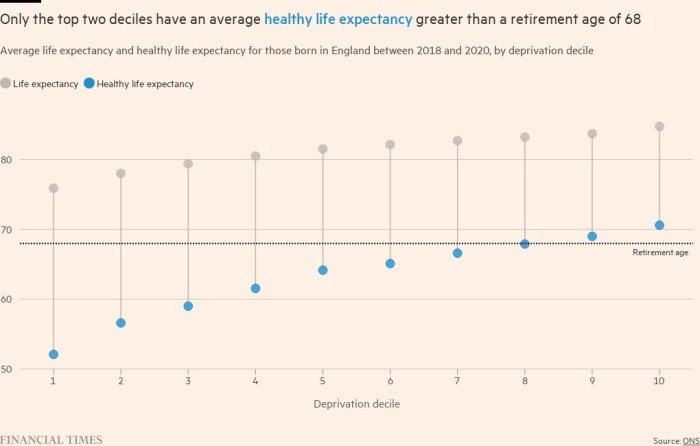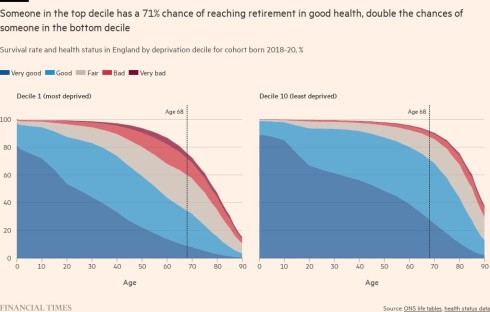Is a healthy retirement only for the rich?
As the retirement age creeps up in the UK, so does the number of people who will never reach it — something that is felt most harshly in the most deprived parts of the country. Among the most deprived 10 per cent, a quarter of people will die before reaching the planned higher retirement age of 68, while in the least deprived decile the figure is fewer than 1 in 10.
This year, ministers put off the decision on when to raise the retirement age from its current 66 for both men and women. Presumably they felt that bringing forward the increase might be too sour a pill for the public to swallow in an era in which life expectancy was falling even before Covid.

It may be easy to assume that what explains this increase in mortality rates between the wealthiest and most deprived groups is simply a larger number of people making “poor decisions” such as smoking, bad diets or drug use. But the fact that the discrepancy is consistent even in children suggests a more complex relationship. In 2022, 10 times more eight-year-olds died in the most deprived decile compared to the least deprived.
And for those who do reach retirement age, health will not be universal. According to the Office for National Statistics, the average Brit will begin to experience poor health nearly five years before a retirement age of 68.

Looking at health status on a survival chart for the top and bottom deciles tells us even more: we can compare the chances of good and bad health for babies born in each group as they age. A baby born in England’s most affluent areas has a 71 per cent chance of reaching 68 in good health, but at the opposite end of the wealth spectrum they have less than half that chance. Those in the poorest areas are more likely to be going to a friend’s funeral or visiting them in hospital than to be hiking with their peers; in the top decile, people may be so surrounded by healthy contemporaries that it seems shocking when someone becomes unwell.

But enjoying a healthy retirement is not just about being in good physical shape: holding on to that health also matters. People in the top decile are more than twice as likely than those at the bottom to enjoy 10 or more healthy years after retirement age.
If, instead of a universal retirement age, we had a universal “chance of a healthy retirement” we could set fairer objectives. If we decided that each baby at birth should have, say, a 50 per cent chance of getting to enjoy 10 or more years of leisure, retirement for the top decile could be set just shy of the anticipated age of 68, while those in the bottom decile would be free to retire at 46.
This story originally appeared on: Financial Times - Author:Eade Hemingway
























